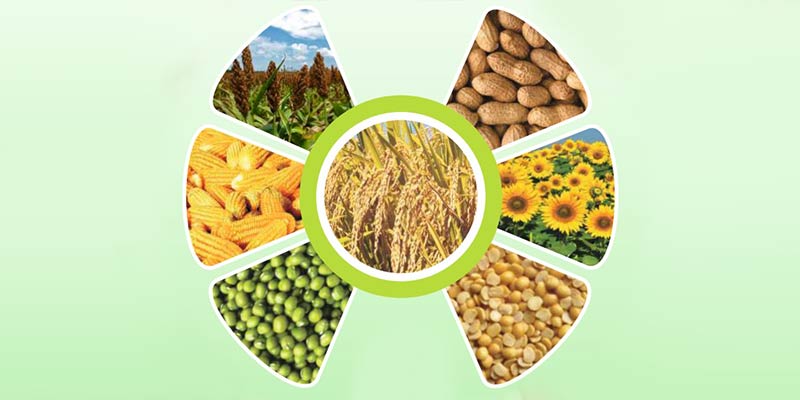- India
- Jun 20
- Kevin Savio Antony
Explainer - Minimum Support Price
The government has decided to increase Minimum Support Price (MSP) for 14 crops for the 2024-25 kharif marketing season.
The increase in MSP for paddy, cotton, millets, pulses, oilseeds will benefit the farmers.
The highest absolute increase over the previous year has been recommended for oilseeds and pulses, with the MSP for niger seed rising by Rs 983 per quintal. This is followed by sesamum, which saw an increase of Rs 632 per quintal, and arhar dal, a staple pulse, which saw its MSP rise by Rs 550 per quintal.
What is MSP?
• The Minimum Support Price (MSP) mechanism provides a price guarantee to farmers for their produce.
• This is implemented across the country as nearly 86 per cent farmers fall under the small and marginal category.
• It also helps in stabilising prices in the market and thus services the consumers as well.
Genesis of MSP
• India inherited an agrarian economy from the British with the agriculture and allied sector contributing to around three-fourths of the Gross Domestic Product (GDP) and providing employment to more than four-fifth of the population.
• The food shortages faced during the mid-1960s pushed India to reform its agricultural policy and accordingly India adopted significant policy reforms focused on the goal of achieving food grain self-sufficiency.
• Series of institutional reforms were undertaken to boost agricultural production and to modernise farming practices. These included land reforms, structural changes in the agricultural administrative arrangements, agricultural extension schemes, initiation of price support policies including the introduction of the minimum support price (MSP) for major agricultural produces, introduction of new technologies (popularly known as the green revolution), strengthening of agricultural research, etc.
What is the significance of MSP?
• The prices of agricultural commodities are inherently unstable, primarily due to the variation in their supply, lack of market integration and information asymmetry.
• A very good harvest may result in a sharp fall in the price of that commodity during that year which in turn will have an adverse impact on the future supply as farmers withdraw from sowing that crop in the following years. This causes paucity of supply next year and hence, major price increase for consumers.
• To counter this, the MSP for major agricultural products is fixed by the government, each year.
• MSP is a tool which gives guarantee to the farmers, prior to the sowing season, that a fair amount of price is fixed to their upcoming crop to encourage higher investment and production of agricultural commodities.
• The MSP is in the nature of an assured market at a minimum guaranteed price offered by the government.
What is the process to fix MSP?
• The Commission for Agricultural Costs & Prices (CACP) is an attached office of the ministry of agriculture and farmers welfare. It was established in January 1965.
• It is mandated to recommend MSPs to incentivise the cultivators to adopt modern technology, and raise productivity and overall grain production in line with the emerging demand patterns in the country.
• MSP for major agricultural products are fixed by the government, each year, after taking into account the recommendations of the commission.
• CACP recommends MSPs of commodities, which comprise cereals, pulses, oilseeds and commercial crops.
• CACP submits its recommendations to the government in the form of price policy reports every year, separately for five groups of commodities namely kharif crops, rabi crops, sugarcane, raw jute and copra.
• Before preparing aforesaid five pricing policy reports, the Commission draws a comprehensive questionnaire, and sends it to all the state governments and concerned national organisations and ministries to seek their views.
• Subsequently, separate meetings are also held with farmers from different states, state governments, national organisations like Food Corporation of India (FCI), NAFED, Cotton Corporation of India (CCI), Jute Corporation of India (JCI), trader’s organisations, processing organisations, and key central ministries.
• The Commission also makes visits to states for on-the-spot assessment of the various constraints that farmers face in marketing their produce, or even raising the productivity levels of their crops.
• Based on all these inputs, the Commission then finalises its recommendations/reports, which are then submitted to the government.
• The Cabinet Committee on Economic Affairs (CCEA) takes a final decision on the level of MSPs and other recommendations made by the CACP.
(The author is a trainer for Civil Services aspirants.)


